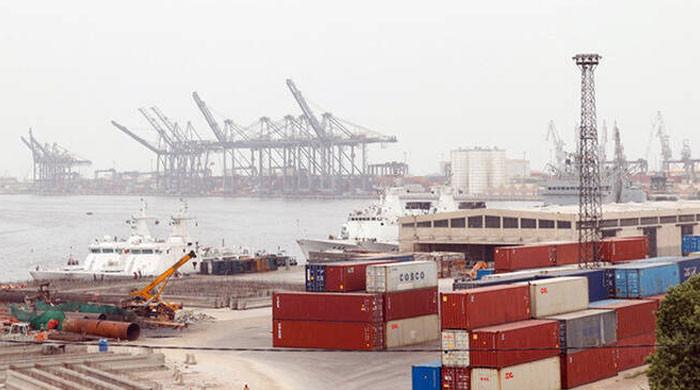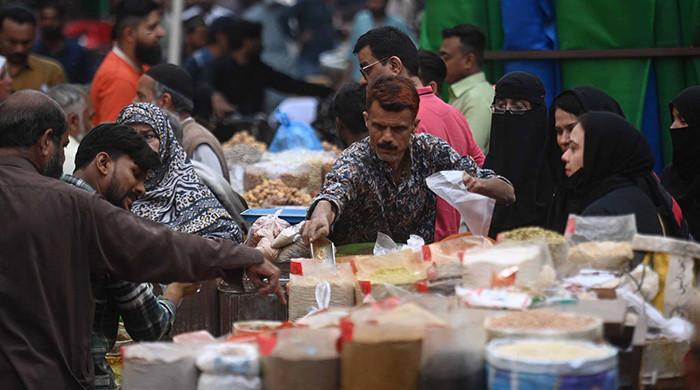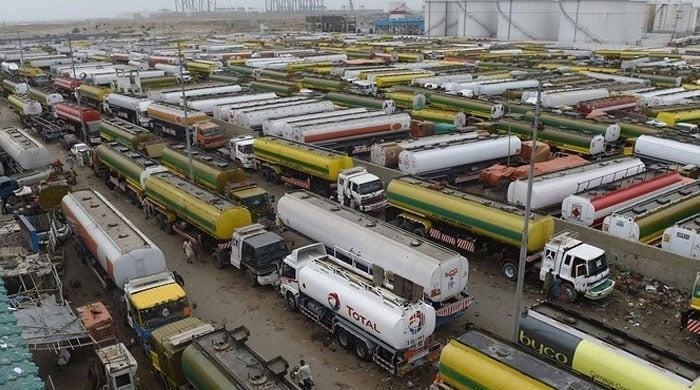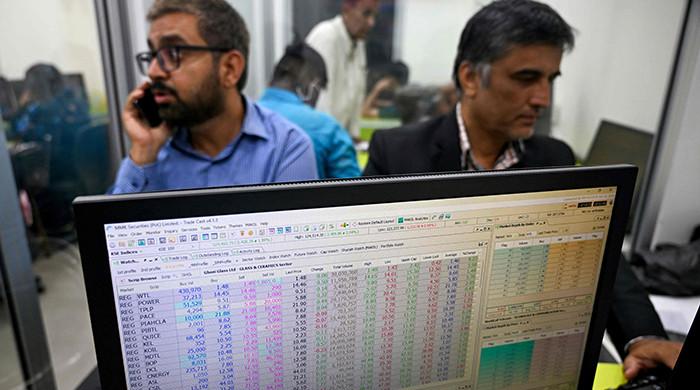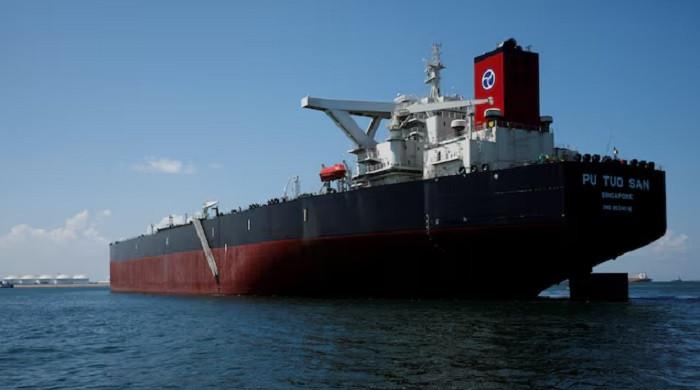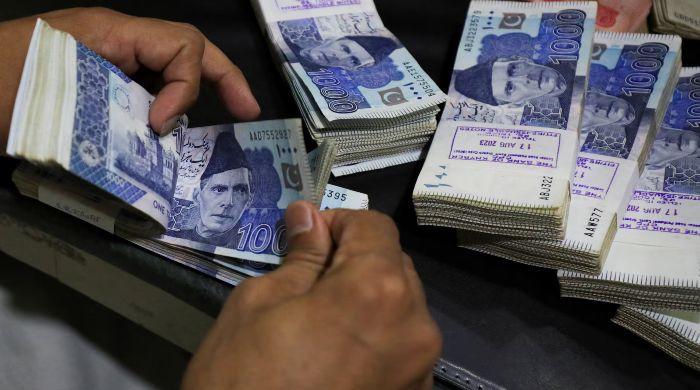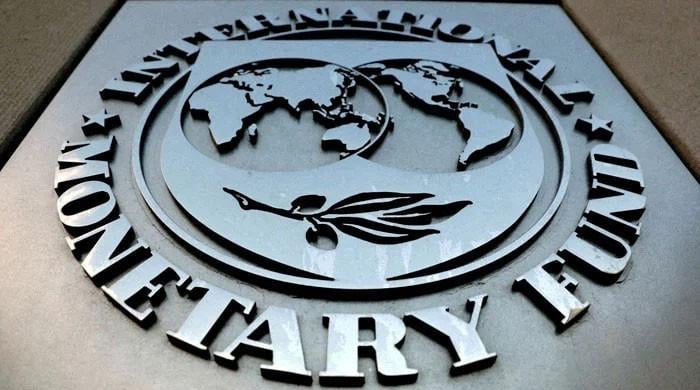Political upheaval: Moody's, Fitch concerned over Pakistan's external financing position
Moody's says widening deficit to threaten govt's external repayment position; Fitch warns of policy uncertainty
April 12, 2022
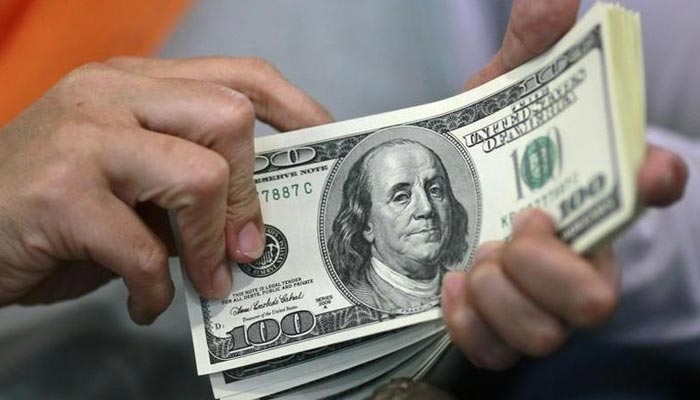
- Moody's highlights risks for Pakistan's economy in a fluid political situation.
- Securing external financing, including from IMF, will be key to continuing to meet Pakistan’s external obligations.
- No-trust move raises uncertainty over govt's capacity to commit to implementing reforms.
ISLAMABAD: Global rating agencies — Moody’s and Fitch Ratings — have highlighted the risks for Pakistan's economy and its external financing position amid a volatile political situation.
Moody’s — a global credit rating agency — said that further deterioration in the country's external position, including the widening of its current account deficit and erosion of foreign exchange reserves, would threaten the government’s external repayment position, The News reported.
Prior to the no-trust motion, Moody's said on March 28: "We view the no-confidence motion as credit negative because it raises significant uncertainty over policy continuity, as well as the government’s ability to continue to implement reforms to increase productivity growth and secure external financing, including from the International Monetary Fund (IMF)."
The no-confidence motion came at a time when Pakistan is facing surging inflation and a widening current account deficit amid rising global commodity prices.
Read more: Moody’s is concerned about Pakistan’s economy
“A further deterioration in its external position, including a significant widening of the current account deficit and an erosion of foreign-exchange reserves, would threaten [the] government’s external repayment capacity and heighten liquidity risks,” the agency warned.
Pakistan faced significant pressure on its foreign-exchange reserves in recent months, amid rising global commodity prices and a recovery in domestic demand. The Russia-Ukraine military conflict, which has hiked global commodity prices, has amplified pressure on the country’s external position. The country is a net oil importer with petroleum and related products accounting for about 20% of total imports.
Moody’s projected that Pakistan’s current account deficit amounted to more than $12 billion between July 2021 and February 2022, a stark contrast to a $1 billion surplus in the same period a year earlier.
“We now expect the deficit to widen to 5-6% of GDP in fiscal 2022 (ending June 2022) compared with our previous forecast of 4%. This further widening will put greater pressure on Pakistan’s foreign reserves, which declined to $14.9 billion as of February 2022 from $18.9 billion in July 2021, according to IMF data, sufficient to cover only around two months of imports” it added.
Read more: SBP governor pledges 'timely policy actions' amid political crisis
Securing external financing, including from the IMF, will be the key to continuing to meet Pakistan’s external obligations given the pressures on its foreign-exchange reserves.
However, the no-confidence motion and subsequently the election of Shehbaz Sharif as the new prime minister raises significant uncertainty over the government’s capacity to commit to implementing reforms, particularly those aimed at broadening the revenue base.
How Pakistan will approach the IMF programme from this point on is uncertain, and its participation could be in doubt. Pakistan is undergoing its seventh review under the IMF’s Extended Fund Facility program, which has disbursed $3 billion out of the stipulated $6 billion to date.
The discussions between Pakistan and the IMF appear to have stalled since early March, with the IMF expressing concerns over the PTI government’s relief package in response to rising inflation.
Read more: PM inherited bad economy, but leaves it in even worse shape, says Atif Mian
Relief measures included subsidies on fuel and electricity prices, as well as a tax amnesty for specified sectors. The ruling party will find it difficult to balance advancing revenue-raising reforms to secure external financing and political pressure from voters facing rising living costs, the statement concluded.
Fitch warns of external financing risk
Meanwhile, Fitch Ratings warned that the recent government change in Pakistan has been peaceful, but raises near-term policy uncertainty even as the country faces external and fiscal challenges from rising commodity prices and an increase in global risk aversion.
According to a statement issued by the Hong Kong-based rating agency, the authorities’ policy agenda remains central to Pakistan’s ability to refinance its external debt over the medium term, “as well as our assessment of the rating, which we affirmed at ‘B-’/Stable in February 2022.”
The recent oil price shock will push up the current account deficit, adding to already high gross external financing needs from an elevated debt-repayment schedule. “We now forecast a current-account deficit of around 5% of GDP (around $18.5 billion) for the fiscal year ending June 2022 (FY22), up from 4% in our February review. We expect this to moderate to around 4% in FY23, as oil prices ease,” the statement read.
Read more: Pakistan's pace of economic growth to slow down to 4% in FY22, projects ADB
It further added that Pakistan faces $20 billion in external debt repayments in FY23, though this includes $7 billion in Chinese and Saudi deposits that “we expect to be rolled over.”
Meanwhile, higher trade deficits and capital outflows have driven a sharp depreciation of the Pakistani rupee against the US dollar. This, along with debt repayments, has put pressure on liquid foreign exchange reserves with the State Bank of Pakistan (SBP), which fell by $5.1 billion between end-February and April 1, 2022, to $11.3 billion.
“We believe the decline also partly reflects repayment of a $2.4 billion loan from China that is slated to be renewed,” it said.
'Change in govt may complicate IMF programme'
Regarding the International Monetary Fund (IMF) programme, Fitch Ratings mentioned that the previous government’s implementation of reforms in line with an IMF programme helped to underpin its access to global debt markets.
This was highlighted by Pakistan’s issuance of a $1 billion Sukuk in January 2022. Since then, the country’s access to private creditor finance has been challenged by external factors, such as rising US interest rates and heightened investor risk aversion around the Ukraine conflict.
“We believe setbacks to reform or the IMF programme would make access even more difficult,” it projected.
Read more: IMF to continue providing support to Pakistan after 'new govt is formed'
“The change in government may complicate timely completion of the remaining three reviews of the IMF programme,” the rating agency said, adding that senior officials from key parties in the new government have signalled that they plan to maintain engagement with the IMF.
However, negotiations around key revenue-raising reforms “could prove lengthy, particularly as the government is a broad coalition of disparate political parties.”
Meanwhile, new fuel subsidies introduced in March as part of efforts to restrain inflation have already added to the complications facing programme negotiations and medium-term fiscal consolidation, as have upcoming elections, which are still due by mid-2023.
“Fitch believes Pakistan has the ability to manage its external liquidity position in the near term if policy uncertainty is resolved relatively quickly and commodity prices do not rise substantially above our forecasts for 2022-2023.
Read more: Economy will bear brunt of constitutional crisis, say analysts
“We expect its access to bilateral financing to remain robust, particularly from China. The two countries’ strong bilateral relationship is unlikely to be significantly weakened by Pakistan’s change in leadership,” it added.
The statement further mentioned that the change in government will test how institutionalised recent reforms, such as the independence of the SBP and the more market-determined exchange rate, are.
“We would view slippage on reform momentum as credit negative. In the longer term, if the authorities are unable to pursue fiscal consolidation, we expect Pakistan’s access to market financing to remain constrained,” the statement read.





